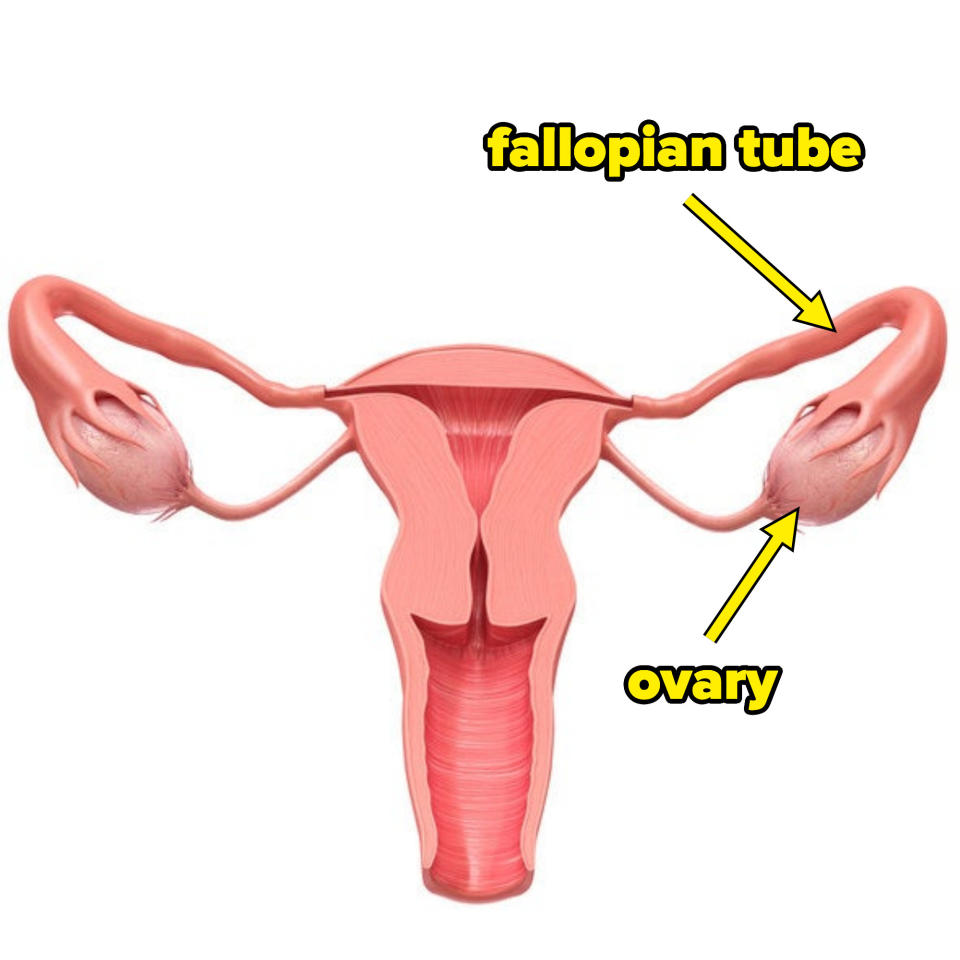TikTok Just Taught Me That You Can Sometimes Feel When Your Body Releases An Egg During Ovulation, And I Am Once Again Asking Schools To Start Teaching This Kind Of Stuff In Health Class
It seems like every other day, I see something on TikTok that teaches me more about my own body than I ever learned in school.
NBC
And here we are again! Recently, TikTok user @thepaigeypaige shared her experience with something called Mittelschmerz. Although that probably sounds like a faraway land in a medieval novel, it's actually something that happens when your body releases an egg!!!! (Assuming you're someone who ovulates.)
Prime Video
In the video, @thepaigeypaige explains that one day, while she was at work, "I [felt] this really sharp pain in my ovaries, and this happens to me every single time that I'm in the middle of my cycle but not on my period."

She continues, "My coworker was like, 'That sounds like Mittelschmerz, are you ovulating?' And after looking at her health app, @thepaigeypaige was, indeed, ovulating.
Red Talk Table
"I looked it up," she says, "and Mittelschmerz is when you physically feel a ripe egg popping out of your ovary to go down into your fallopian tube. Are you kidding me?! I can physically feel when an egg is being released from my ovary?!"
TV Land
In the comments, some were just as surprised as she was:

Meanwhile, others corroborated:

I too was feeling very "are you kidding me?!" after watching @thepaigeypaige's video, so I did a little digging on my own. And it turns out, Mittelschmerz is totally a thing! According to Mayo Clinic, Mittelschmerz refers to "one-sided, lower abdominal pain associated with ovulation," and it's the German word for "middle pain." It occurs around midway through the menstrual cycle, about 14 days before your next period. The pain can vary, from a dull ache to sensations similar to menstrual cramps. In rare cases, the pain can be severe.

To get even more info on Mittelschmerz and how common it is, I reached out to Dr. Marguerite Brathwaite, MD, F.A.C.O.G., a board-certified OB-GYN and owner and founder of Innovative Women's Care in Las Vegas, Nevada.
Dr. Brathwaite told BuzzFeed that the pain associated with Mittelschmerz happens when an ovary "releases an egg and follicular fluid, and when the egg breaks through the follicle." She also explained that it's usually felt on only one side of the pelvis, depending on which ovary is actually ovulating, since the ovaries switch ovulating each month. According to Dr. Brathwaite, Mittelschmerz occurs in around 20% of women.
ABC
"It's different from menstrual cramping, which we call dysmenorrhea," Dr. Brathwaite explained. "That occurs when you menstruate and release your endometrial lining."
Luckily, Dr. Brathwaite said that Mittelschmerz generally shouldn't be a concern among most patients. But if pain relief is something you're looking for, she has a few recommendations: "Mittelschmerz can usually be relieved with an over the counter NSAID, like ibuprofen. Heating pads or warm baths can also be relieving. If the pain is more severe, one can consult their OB-GYN and get on oral contraceptives. Because when you're on birth control pills, you don’t ovulate, and therefore, you won’t get this pain, or it definitely should be milder."

When asked what she thinks should be done to educate more people about Mittelschmerz, Dr. Brathwaite responded, "I think most women should find a good OB-GYN and develop a good relationship with them. Find someone they feel comfortable with and who they can talk to easily. The more you're able to explain how you feel to your doctor, the better they will be able to educate you on things that are going on with your body or things that may be of concern. Also, maybe when kids have their health class, and they learn about their bodies and menstruation, it should be mentioned then. So, when it happens to them, they'll understand what's happening and it won’t be concerning to them, or they'll be better able to articulate their symptoms and get treatment."
TLC

